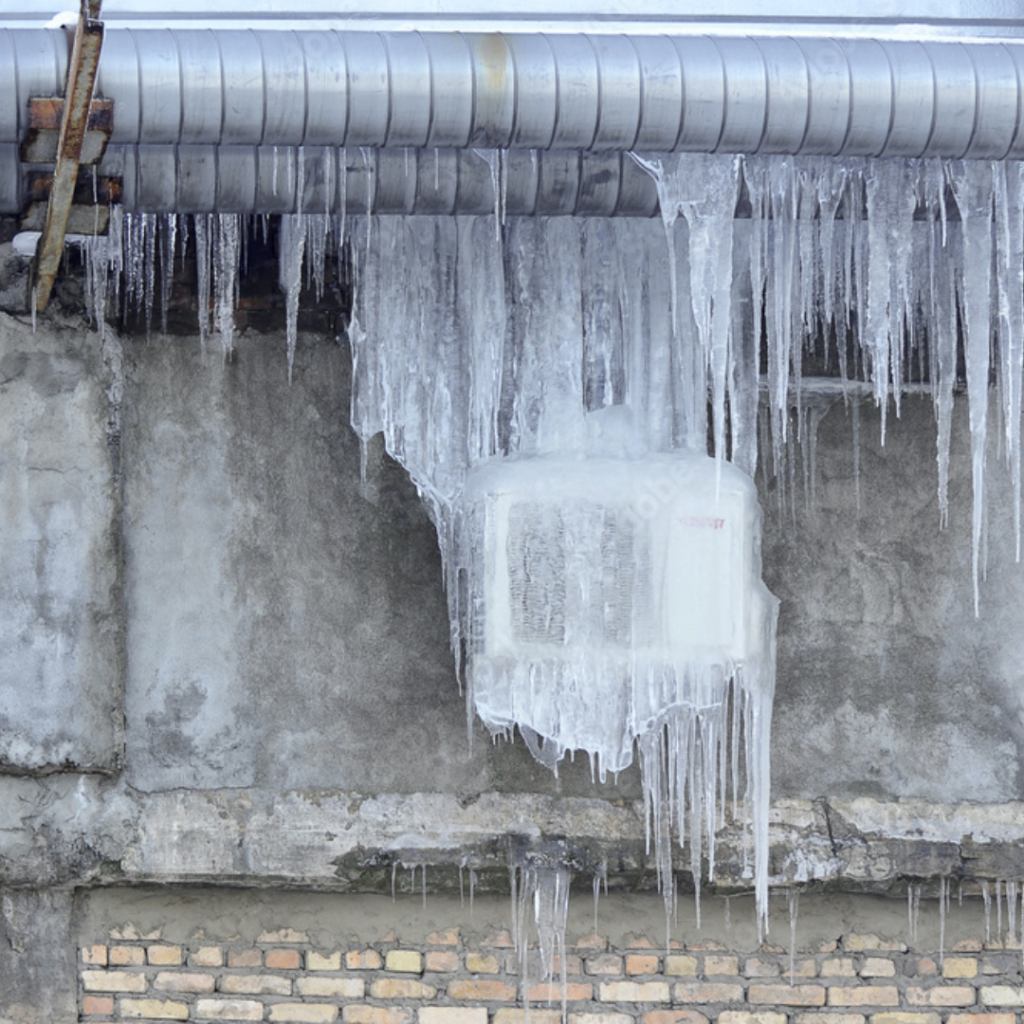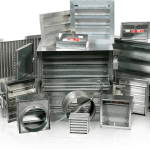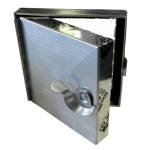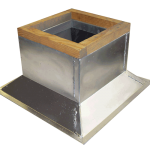
A frozen HVAC unit can ruin even the best day. Thankfully, it’s easy to keep your heating, ventilation, and air conditioner (HVAC) unit up and running as long as you follow these quick and easy housekeeping tips.
HVAC Unit Care FAQs
- What causes a frozen HVAC unit?
- How do I clean my HVAC unit?
- Do air dampers impact an HVAC?
What Causes a Frozen HVAC Unit?
Keeping a building cool is about more than setting your thermostat to the right temperature. An HVAC unit plays a crucial role in the comfort level of an indoor space, which is why it’s essential to have a basic understanding of the ins and outs of HVAC unit maintenance. When your air conditioning stops working, you might be surprised to learn that the problem could be due to a frozen HVAC unit.
Several issues can cause a frozen HVAC unit. Outside of a broken thermostat, there are a few other common causes.
Frozen HVAC Unit Common Causes
- A dirty air filter
- Closed air dampers to your HVAC unit or closed registers
- Drainage line issues
An air filter helps clean and purify the air that circulates through an HVAC unit. If you notice reduced airflow, chances are you’re dealing with a dirty air filter. You should change or clean the filter in your HVAC unit once a month. When an air filter becomes dirty, there is less warm air blowing into the evaporator coil, making the air conditioner work harder.
Contrary to popular belief, the warm, humid air blowing through your air conditioner is what keeps it working by preventing the internal coils from freezing. There are dozens of different kinds of air filters, including disposable and reusable styles. Several companies will even deliver filters to your home regularly to help remind you to keep your HVAC unit filter clean.
Closing your HVAC air dampers or registers can help control the amount of air delivered to unused spaces, saving energy and money. For example, if you have a conference room that isn’t in use during the winter, there’s no need to pay for that space to be kept warm. However, your HVAC unit requires enough airflow to maintain a comfortable temperature and prevent freezing. Experts recommend losing no more than 25% of the registers or HVAC air dampers in a building to prevent a frozen HVAC unit.
Another issue that can cause a frozen HVAC unit is a lack of drainage. When warm, humid air passes the evaporator coil, the heat and moisture is removed from the air, where it then drips into a pan and out a floor drain. In especially humid climates, a clogged drain can quickly cause a frozen HVAC unit. During the summer, experts recommend checking your HVAC drain on a weekly basis to prevent freezing.
How to Clean Your HVAC Unit
Keeping your HVAC unit clean is key to preventing a frozen HVAC unit, keeping indoor air clean, and reducing your energy bill. Watching your drain lines during the summer and regularly cleaning or replacing your air filters are great first steps, but there are additional measures you should take if you want to keep your HVAC unit running smoothly for as long as possible.
Each year when your unit transitions from heat to cool, we recommend having your HVAC unit serviced by a professional to check for leaks and cracks and to perform routine services. Your technician will check refrigerant levels, which can be a common cause of frozen HVAC units. Low refrigerant levels can be caused by a leak in the evaporator coil, refrigerant lines, or compressor. Also, ask the technician to check any wear and tear to your unit’s blower fan and motor. Problems with the power output, rotational direction, and rotation speed can all cause HVAC issues.
Did you know you can clean your HVAC coils yourself? The simple process should be done once or twice a year, depending on your location and weather conditions. It is recommended to turn off your air conditioner at the circuit breaker to be extra cautious before going further. Once you gain access to the coils, you can use one of several cleaning methods to remove debris from your unit.
3 Ways to Clean Your HVAC Coils:
1. Compressed air: Lightly soiled coils can be cleaned by using compressed air. Point the air in the opposite direction that air typically flows against the coil and use a steady amount of air to the dirt free. A shop vac can be used to vacuum up any dirt or debris once it is blown free.
2. Soap and water: Although commercial cleaning products are available, it’s just as easy to mix soap and water in a garden sprayer or spray bottle. Spray the coils with the mixture and then wait a few minutes for any dirt to loosen before wiping the coils clean with a cloth or soft brush.
3. Advanced cleaning: Heavily soiled evaporator coils may need a stronger cleaning solution than soap and water or a soft brush and can benefit from a pressure wash or steam clean. This process can require removing the coils and refrigerant lines, and we recommend consulting with a professional to prevent damages and avoid having to invest in the equipment yourself.
Do Air Dampers Have an Impact on HVACs?
Although we touched on it a bit earlier, there is a distinct connection between your air dampers and HVACs, especially when it comes to preventing a frozen HVAC unit. Keeping your HVAC air dampers clean, in proper working order, and preventing too many from being closed at any given time will go a long way in keeping your air conditioner performing at its peak. In addition to having your HVAC unit and air dampers inspected regularly, it’s also recommended to monitor your overall ductwork for debris, leaks, and collapsed vents or duct lines. This inspection can be done when your HVAC unit is being inspected.
Planning ahead to prevent a frozen HVAC unit is much easier – and more affordable – than paying to have things fixed once they break. By investing in proper HVAC unit maintenance, you can avoid costly repairs and keep the air around you clean and comfortable.




